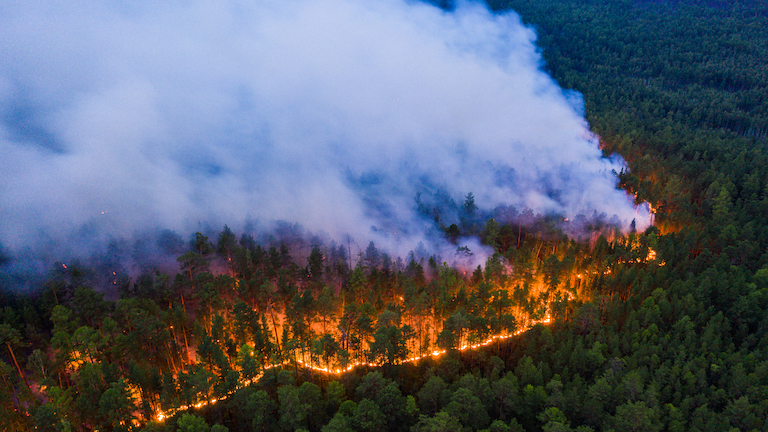Siberia: A Hot Take
Siberia is BURNING, figuratively and literally. The summer of 2020 witnessed a prolonged hotspell in Siberia, with the region’s average temperature rising to the 2nd highest in record for the period of January to May. While the small town of Verkhoyansk in Russia saw record-breaking maximum daily temperature of 38 degree Celsius, over 300 wildfires erupted across the country’s vast landscapes. Though Siberian summer is historically associated with rise in temperatures, these anomalous records in the global climate trend are truly concerning.
In a report published by Copernicus Climate Change Services (C3S), the organisation noted that “the temperature averaged over all land in Arctic Siberia combined was more than 5 degrees above normal’’. This spike in average temperature has resulted in a feedback loop of devastating events like rapid wildfires, thawing permafrost and pest infestation.
Since the start of the year, Siberia has witnessed massive wildfires that affected an estimated 9.26 hectares of vegetation, according to Greenpeace Russia.
Experts also believe that Siberian heat waves may have destabilized Arctic PERMAFROST. These are permanently frozen grounds that lock a huge portion of carbon based compounds beneath its surfaces. Once exposed, these compounds decay by microbial decomposition releasing greenhouse gases, which trap heat radiation and consequently increase atmospheric temperature.
Another concerning consequence of thawing permafrost is the collapse of man-made structures that are built upon it. In the oil spill incident at the Russian town of Norilsk, it is speculated that thawing permafrost is at least partly responsible for the collapse of an oil tank that flooded local rivers with about 20,000 tonnes of diesel.
These unsettling events have thrown scientists and climatologists around the globe in a state of panic. A study conducted by a group of scientists for World Weather Attribution, assessed the extent to which humans have impacted the occurrence of heatwaves in Siberia. Their findings concluded that the “January to June 2020 prolonged heat was made at least 600 times more likely as a result of human-induced climate change”, strongly emphasizing on the impossibility of the situation without human influence.
Earlier this year, Gail Whiteman, director of the Pentland Centre for Sustainability Business delivered a sharp address at the World Economic Forum on the wide-scale impacts of Arctic heat waves on the global climate, stating that “what happens in the Arctic doesn’t stay in the Arctic”. In her address, Ms. Whiteman also showed a very concerning projection explaining that “if we get to a 2 degree warmer world, some of the major cities around the world including Tokyo and New York will indeed be flooded”. When viewed along with the recent finding of “an estimated 5 degree celsius rise in temperature by 2050” in the report published on World Weather Attribution, this projection underscores the alarming climate crisis the Arctic Siberia is suffering from and its implications for the world at large.
The Siberian heat waves prompt us to ask if we, as humans, have finally decided to see climate change for what it is – a global concern with potentially catastrophic impact. Events like like this are not localised or persist only for a particular period of time. With increase in the intensity of forest fires and anomalous weather patterns round the globe like the 2018 Siberian winter, it is evident that the mobilisation of resources and a global effort are an urgent need to prevent further damage to climate.



